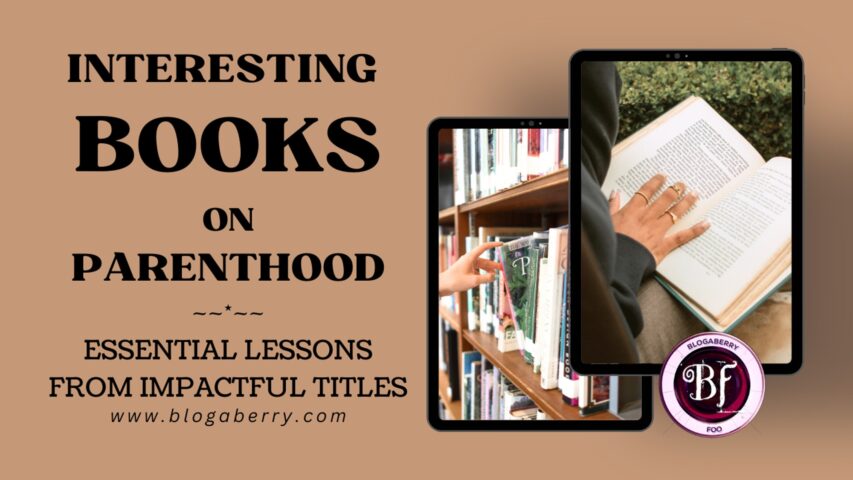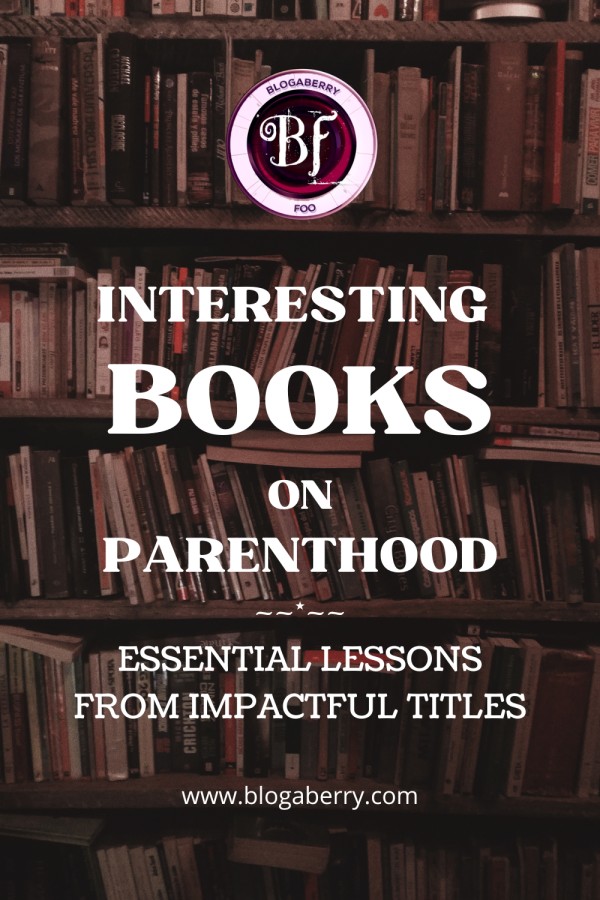


Parenting is rewarding and challenging at the same time. According to a study conducted by the Pew Research Center, more than 62% of parents admit that parenting is more difficult than they assumed it would be. Besides, when planning how to raise your children there are so many things to think about. Like, what kind of talents do you wish for your offspring? What measures can you take to protect them from mental and physical sufferings?
However, you should follow your instincts; sometimes advice is quite useful and can come in handy if you get a chance to talk with your parents about such matters or maybe other close relatives or friends who have already tried their hand at parenting. Nevertheless, one need not conform exactly to what he was told but must certainly incorporate some suggestions given into his own style of bringing up children. Nevertheless, you are not obliged only to rely on your acquaintances’ wisdom. The information from researchers, psychologists, and educators may also back up what you know based on facts and workable ideas. This is where parenting books can be useful.
Below are some significant lessons you can learn from a few impactful titles.
Raising our kids takes up a lot of our time and energy. Tackling that burden alone can be exhausting. Even if you’ve got your partner by your side, you may not be able to provide your kids with as diverse a range of experiences, knowledge, and support as you want them to have. That’s why there’s so much truth to the old saying ‘It takes a village to raise a child’. Your village can consist of anyone from your siblings and parents to pediatricians and teachers who share the responsibility of your child’s development. This, they say, is the best way to help your kids reach their fullest potential.
That’s the vital lesson you’ll learn from The Evolved Nest—prioritize building a support system to supplement your parenting efforts. Authors Dr. Darcia Narvaez and Dr. G.A. Bradshaw argue that humans started out with a community-based developmental system for parenting, but largely abandoned it once larger civilizations formed. This lack of a sense of community today significantly diminishes how children, families, and society develop and interact in positive ways. With this title, you’ll learn about species that still raise their kids using an ‘evolved nest’ system—like penguins and elephants—and how to emulate such nurturing environments for your kids by building your own village.
More of today’s parents are choosing ‘gentle parenting’ to combat the harsher parenting techniques they were raised with. They talk with their kids to set clear expectations and validate their feelings when resolving conflicts. However, Newsweek notes that many parents make the mistake of lapsing into ‘permissive parenting’, prioritizing validation over boundaries and essentially entitling their kids to do whatever they want. With this lapse usually happening in early childhood, the majority of people over 40 believe that the overall behavior of kids today is worsening.
You may thus think that gentle parenting is a failed technique—but it doesn’t have to be. Just pick up the Everand bestseller ‘How to Talk so Little Kids Will Listen‘. Here, parenting experts Joanna Faber and Julie King will teach you how to apply the age-old advice ‘communication is key’ with young kids aged two to seven, using strategies developed alongside parents, pediatricians, and teachers. You’ll learn how to set clear boundaries without invalidating your child’s feelings—allowing them to develop into emotionally mature and self-reliant individuals (without you having to resort to more authoritative parenting styles).
It’s easy to get concerned and complicate the process of raising a child. Have you signed them up for a bunch of extracurricular activities? Do you do their homework for them? If yes, then you may eventually become over-involved and cause your kids undue stress and anxiety over time. That’s why Waldorf educator Kim John Payne offers this important lesson through the US #1 bestseller Simplicity Parenting: less is more.
Provide your children with space so that they can find their bearing and discover things on their own. Thus, they will learn more about life and acquire knowledge naturally without any need for you to alter them. Be there for them if they need your support and guidance but let them learn at their own pace. Gradually, your kids will grow up calmer, happier, and more secure with themselves and their capabilities as they reach adulthood.
As a parent, you may feel the need to be perfect or infallible. The Chicago Public Library finds that moms especially feel more pressured to meet the myth of being the ‘perfect mom’ and experience worse mental health outcomes when they fail to reach certain goals. For both moms and dads, though, acting as your kids’ primary authority figure and role model may make you feel like you can’t make mistakes in front of them as they grow. However, that’s simply untrue.
In the book ‘Imperfect Parenting’, Brittney Serpell, Mom and Parenting Specialist tells us that we, parents, should not focus on being perfect. Doing so may end up losing sight of the real goal of parenting which is fostering a heart-to-heart connection with your kids. Instead, prioritizing connections can help you better guide your kids as they learn to live life by learning from their own mistakes. Reading from this impactful title means you’ll discover the one crucial parenting lesson: it’s okay to simply be good enough.

While reading is a good habit to instill in our kids, referring to interesting books on parenthood can prove to be helpful with parenting our little ones so that they grow into independent and smart individuals. If you have already read these books, do let us know how they helped you up your game of raising your kids right!
Photo by Elina Fairytale.
This post is part of the Bookish League blog hop hosted by Bohemian Bibliophile.
20 Comments
Insightful list of books on parenthood! These impactful titles offer essential lessons and valuable perspectives for parents. Thanks for sharing these valuable resources!
I haven’t read any parenting for obvious reasons. Enjoyed reading your takeaways. Each one is spot on, particularly that it takes a village. I have been shaped up as much by my parents as by my extended family.
Wow, that’s so cool, Ritu!
For a new parent, this is such a reassuring read- these points really validate the parents journey throughout.
Parenting is a learning everyday. I’ve read most of these books but I also understood not everything we read is applicable. So a tweak here and there works for me
Of course, Sindhu, these are just guides.
I am a new mom and got some good advice. Communication should indeed be clear between kids and parents.
Glad this is helping you, Kanchan!
Parenting is not an easy job and requires a lot of patience. One needs to understand the vibes from their kids and politely handle the situation not hurting them physically, emotionally or mentally. Little tit bits that life offers is to handled with care.
It’s okay to be simply good enough seems like a t-shirt idea 🤩 might just borrow it 😎
These seems very helpful. Will pass it on to my friends with kids
Parenting I am still learning and every day is new for me and so the lessons you shared here Cindy will definately be useful for me. Thank you so much for this awesome post.
Absolutely, parenting is indeed a rewarding yet challenging journey. It’s fascinating to see that more than 62% of parents find it harder than expected—something that surely resonates with many. Your insights into both seeking advice and trusting one’s instincts are spot-on. I appreciate your balanced approach, acknowledging the value of both personal experiences from relatives and evidence-based strategies from experts. The lessons you’ve highlighted from various parenting books are incredibly insightful, particularly the idea that it takes a village to raise a child and the importance of communication. It sounds like these books provide practical tools and thoughtful perspectives that can help any parent navigate the complexities of raising children today.
Great list…though I had the What to Expect series and can vouch for it any day! I am sure the books you suggested here would benefit the new parents in so many aspects of parenting.
Parenting is not easy but challenging. The present generation adopted soft parenting to remedy the hard parenting of the old generation, which is now facing challenges. I recommend communication and negotiation.
I will recommend the books to parents who need to understand that it’s okay to be a soft parent. Everyone in my home is single and all my friends have kids in their 20s, so I guess this gen has learned a lot along the way. But good recos.
Parenting sure tests us a lot and we try to be the best version of ourselves which can be tiring. These books are really helpful for clearing so many doubts about how much to yield, how to communicate effectively with the kids, and when to let go.
Those are some helpful lessons you’ve picked up from books! Though I don’t have children, I see the value in all the points you shared. Especially the one on it taking a village — that’s so true!
Parents need to be able to express themselves clearly, listen actively, and provide guidance and support in a way that their children can understand and relate to. This means providing praise, encouragement, discipline, advice and more – all at the appropriate time!
These books seems to be a guiding light for them.
Those are some helpful lesson you’ve giving out to parents or to someone becoming a parent, I m sure it will help them raise their kids. I enjoyed reading your post though I don’t have my own kids yet.
Thank you for stopping by, Caroline!